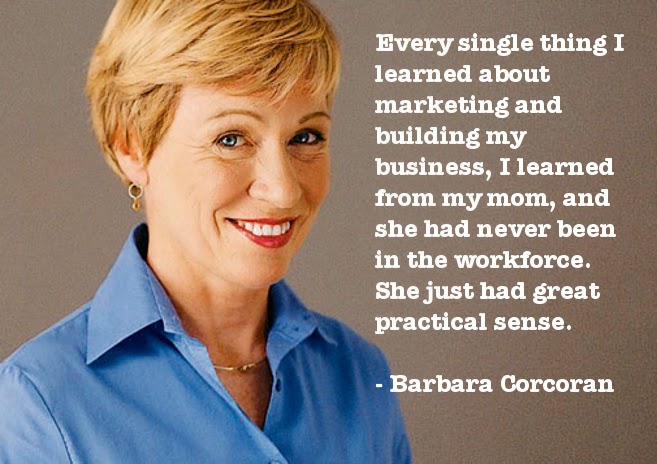Over the years, I've worked for others and I've worked for myself. Through trial and error, I've figured out a few key character traits that helped hone my leadership skills. Directness, transparency, and decisiveness are three essential traits of a good boss. It’s also important to remember the rules outlined below.
1. Employees are not your friends. Even if you like them, even if you hired them because they are your friends, while they are working for you they are not your friends. They are your employees. The problem with socializing with your employees is that it makes it hard to be objective about their performance, and harder still to crack down on them if they’re under performing.
2. Maintain a clear line of command. In most of my endeavors, I've had a partner, and we've helmed our companies side by side. But I weigh in on issues that fall outside the realm of my command only when completely necessary. Employees always knew which problem to take to Michael Perik and which to take to me. Overlap of authority can get confusing, muck up productivity, and cause unnecessary delays, if not out-and-out grief.
3. Be accessible. You’re not building a fiefdom—you’re building a company. Don’t alienate, isolate, or separate yourself from your partners and top earners. Don’t put them on hold, don’t fail to return their calls, and don’t make them feel like they cannot approach you. I've seen this phenomenon firsthand. It’s toxic, and it’s usually the product of fear or the inability to cope during troubled times. If your first instinct is to bury your head, you are not a leader.
4. Delegate, delegate, delegate. You cannot—nor should you—do everything. CEO's who think that they should weight in on every single aspect of their company get too bogged down in the details, much to the detriment of the overall health of the company. If a ship’s captain is overseeing the catering, he’s going to hit an iceberg.
5. Don’t procrastinate. When an employee is problematic, you must act. Now. Do it right. Do it by the book. But do it.
6. Never pass the buck. Blame stops with you. It always stops with you. Even if you think you had nothing to do with the decision that got your company into trouble in the first place, you’re wrong. You likely had something to do with hiring the person who did screw up. Take immediate responsibility, do what you can to fix the problem, and then whack the knucklehead who couldn't keep pace. If your name is on the product, business, or marquee, that’s especially important.
7. You’re not their parent. Employees will only bring their drama to work if you let them. If you don’t want to be treated like a parent, don’t act like one. If employees are having squabbles, let them figure it out among themselves. I also try to steer clear of giving personal advice. My employees problems are their problems to solve. And it’s up to them not to bring those problems to work. By the way, if one of your employees is suffering from a genuine issue—addiction, depression, that kind of thing—don’t suggest they get help, insist upon it.
8. Life’s not fair. Some people will simply make more money than others in the same job. Some people will work harder. Some will get higher sales. You will trust one over the other to get the job done. You will likely have favorites. That’s life. If someone complains about it, tell him or her to get over it.
9. The boss doesn't always make the most money. Find stars and pay them well. If you want to attract those stars, you’ll have to lure them with dollars. Remember that money’s the great motivator, and if it means you take a hit financially, take it. Talent will always bring in more money for the company, and that has got to be your number one priority always. Which leads me to…
10. The company comes first. This is the most important tenet. Have a singleness of purpose—the health and welfare of the company—keeps things clean and clear. Employees never question your priorities, nor do they have to guess at their goals.
1. Employees are not your friends. Even if you like them, even if you hired them because they are your friends, while they are working for you they are not your friends. They are your employees. The problem with socializing with your employees is that it makes it hard to be objective about their performance, and harder still to crack down on them if they’re under performing.
2. Maintain a clear line of command. In most of my endeavors, I've had a partner, and we've helmed our companies side by side. But I weigh in on issues that fall outside the realm of my command only when completely necessary. Employees always knew which problem to take to Michael Perik and which to take to me. Overlap of authority can get confusing, muck up productivity, and cause unnecessary delays, if not out-and-out grief.
3. Be accessible. You’re not building a fiefdom—you’re building a company. Don’t alienate, isolate, or separate yourself from your partners and top earners. Don’t put them on hold, don’t fail to return their calls, and don’t make them feel like they cannot approach you. I've seen this phenomenon firsthand. It’s toxic, and it’s usually the product of fear or the inability to cope during troubled times. If your first instinct is to bury your head, you are not a leader.
4. Delegate, delegate, delegate. You cannot—nor should you—do everything. CEO's who think that they should weight in on every single aspect of their company get too bogged down in the details, much to the detriment of the overall health of the company. If a ship’s captain is overseeing the catering, he’s going to hit an iceberg.
5. Don’t procrastinate. When an employee is problematic, you must act. Now. Do it right. Do it by the book. But do it.
6. Never pass the buck. Blame stops with you. It always stops with you. Even if you think you had nothing to do with the decision that got your company into trouble in the first place, you’re wrong. You likely had something to do with hiring the person who did screw up. Take immediate responsibility, do what you can to fix the problem, and then whack the knucklehead who couldn't keep pace. If your name is on the product, business, or marquee, that’s especially important.
7. You’re not their parent. Employees will only bring their drama to work if you let them. If you don’t want to be treated like a parent, don’t act like one. If employees are having squabbles, let them figure it out among themselves. I also try to steer clear of giving personal advice. My employees problems are their problems to solve. And it’s up to them not to bring those problems to work. By the way, if one of your employees is suffering from a genuine issue—addiction, depression, that kind of thing—don’t suggest they get help, insist upon it.
8. Life’s not fair. Some people will simply make more money than others in the same job. Some people will work harder. Some will get higher sales. You will trust one over the other to get the job done. You will likely have favorites. That’s life. If someone complains about it, tell him or her to get over it.
9. The boss doesn't always make the most money. Find stars and pay them well. If you want to attract those stars, you’ll have to lure them with dollars. Remember that money’s the great motivator, and if it means you take a hit financially, take it. Talent will always bring in more money for the company, and that has got to be your number one priority always. Which leads me to…
10. The company comes first. This is the most important tenet. Have a singleness of purpose—the health and welfare of the company—keeps things clean and clear. Employees never question your priorities, nor do they have to guess at their goals.










